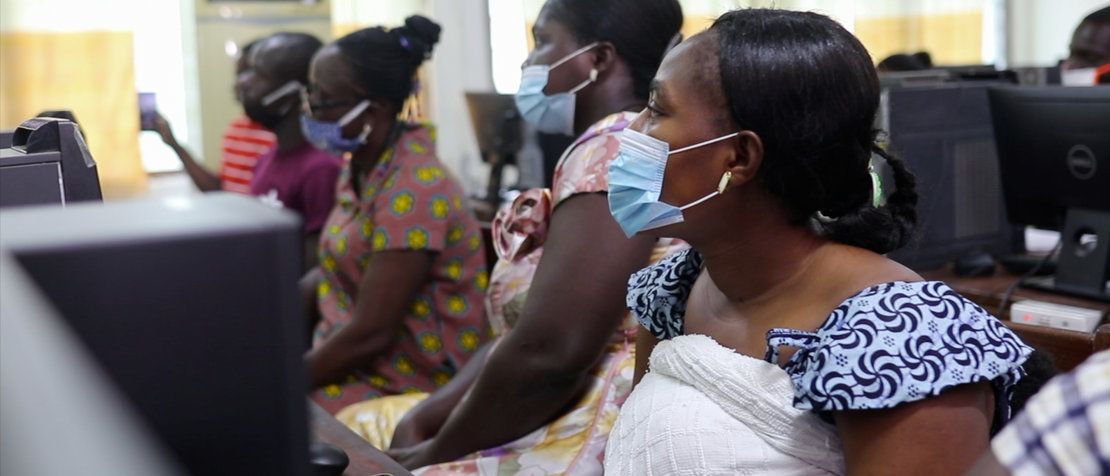
ITU and Norway partner to provide 14,000 Ghanaians with job-ready digital skills
A newly signed partnership between ITU and Norway will scale up and strengthen digital skills training for underserved communities in Ghana, in collaboration with Cisco and the Ghana Investment Fund for Electronic Communications (GIFEC).
Part of the Digital Transformation Centres (DTC) initiative, the programme aims to provide 14,000 citizens in Ghana with job-ready digital skills through 200 training facilities spread throughout the country.

According to Minister Jakobsen, “Digital Transformation Centres in Ghana will be important vehicles for rolling out digital goods, with vast potential for assisting in development for new public goods and adjusting solutions to local contexts.” The project will add value to Norway’s contribution to vocational education in Ghana, he explained. Both Ministers and ITU Secretary-General Zhao held up the signed agreement in a virtual ceremony to show their solidarity and commitment to close the digital divide together.

ITU Sectretary-General Houlin Zhao, State Secretary of International Development for the Norwegian Ministry of Foreign Affairs Aksel Jakobsen, Ghana’s Minister of Communications Ursula Owusu-Ekuful and ITU Telecommunication Development Bureau Director Doreen Bogdan-Martin following the virtual signing ceremony. Image credit: ITU. On the ground impact The President of Cisco’s Europe, Middle East, Africa and Russia region Wendy Mars commended the Ghanaian government for “leaning in to get citizens on board with skills and abilities in digital technologies.” Ms. Mars was referring to citizens like Sekina Isaah, a fashion designer and participant in the DTC initiative. She attested to the efficacy of the programme, explaining how she uses digital technology to follow friends within and beyond her community, and develop new ideas to grow her business. “I recommend it for anyone to build their skills,” she added, thanking all partners who contributed to her training.

Digital Transformation Centre programme beneficiary Sekina Isaay and trainer Emmanuel Ayitey-Adjin recount their experiences with the programme. Image credit: ITU. According to DTC trainer Emmanuel Ayitey-Adjin, the programme has been especially “beneficial for communities to learn about operating systems on different computers. As a trainer I have been able to tell them about Windows, Linux and Mac operating systems. I am grateful to Cisco and GIFEC for making the Digital Transformation Centres available to us.” A call to follow suit Mr. Zhao reminded the signing ceremony audience that only 10 years remain to respond to United Nations Secretary General Antonio Guterres’ expectation to connect everyone by 2030. From the beginning of the pandemic, the ITU Secretary-General has called on all stakeholders to encourage conditions for investment that meet the needs and expectations of the unconnected in terms of connectivity, security, affordability and digital literacy.
“Today Ghana and Norway answered that call,” affirmed Mr. Zhao, calling on more developed countries to take the initiative and support similar digital transformation programmes.
“Digital inclusion is one of the most defining and urgent issues of our time – it is at the heart of the Sustainable Development Goals (SDGs). I hope others will follow the example of Norway and Ghana and join the ITU Digital Transformation Centre initiative,” he concluded. Learn more about the Digital Transformation Centre initiative here.
Header image credit: ITU
